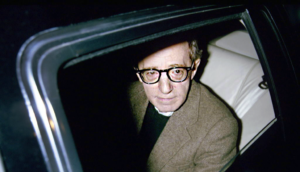This is a tale of censorship. In 2019, Roman Polanski’s film about the Dreyfus Affair, An Officer and a Spy, was nominated for 12 César awards and won the Grand Jury prize at Venice. But, due to #MeToo, it was never released in America, Australia or Britain, where distributors feared boycotts and social media mobs. This week, the UK Jewish Film Festival dared to screen it in London, and they were right. It needs an audience.
The de facto ban is hypocrisy, because on some subjects Polanski will be heard. Chinatown is about child abuse, which is the very thing Polanski did: in 1977 he pleaded guilty to unlawful sexual intercourse with a 13-year-old girl in America and has lived as a fugitive in Europe since, dogged by accusations of predation. Chinatown was 50 this year, and there are public screenings in its honour. But An Officer and a Spy cannot be shown when it is urgently needed. This makes no sense. If you are prepared to allow Polanski’s work to exist — and filmmaking is a collaborative effort — why not show the truth of the Dreyfus case? If you are for censorship, censor all his work. Or none of it.
Its story is this: in 1894, the French army knew there was a German spy in their midst. They scapegoated Alfred Dreyfus (Louis Garrel), the only Jew on the general staff; when they realised the case was weak, they falsified evidence against him. “The idea of the Jew, took hold of them, seized them, dominated them,” wrote the historian Joseph Reinach. “My only crime,” Dreyfus said, “was being born a Jew.” He was convicted, and, at the official degradation ceremony, his sword was broken and the crowd shouted, “Death to Judas, death to the Jews!” He was imprisoned in French Guiana on Devil’s Island — how apt — and as Polanski pulls the camera back from the island to the ocean, Dreyfus’s isolation — his Jewishness — is explicit.
France was the first European country to give equal rights to Jews, and this was the revenge. It was also an epigraph to the Holocaust, in which many French people colluded. Eventually, due to the diligence of Georges Picquart (Jean Dujardin), a fellow officer and repentant antisemite, and the activism of the novelist Émile Zola, Dreyfus was pardoned, then exonerated. This is an old European story, ever revived: a Christian nation divines itself through the prism of the Jew.
Polanski does not place Dreyfus at the centre of his film: he is the man things are done to, in cinema and life. But at least he does justice to the antisemitism that destroyed him. “How does he look?” Picquart is asked of Dreyfus’s degradation. “Like a Jewish tailor weeping over his lost gold.” “What was the mood like afterwards?” “As if a healthy body had been purged of something pestilential so that life could resume.”
The Variety critic described The Dreyfus Affair as “fabled” and “legendary”. Subconsciously, at least, he could not accept that Dreyfus was real. The IndieWire critic could not bring himself to review the film: rather he reviewed Polanski and called it “a film-length tantrum” from “cinema’s most-storied rapist… as nakedly autobiographical as anything Polanski has ever made”.
Polanski demurred — to an extent: “In the story, I sometimes find moments I have experienced myself. I can see the same determination to deny the facts and condemn me for things I have not done. I must admit that I am familiar with many of the workings of the apparatus of persecution shown in the film, and that has clearly inspired me.” He was talking about the rape case. He was also talking about the murder of his pregnant wife, Sharon Tate, and their unborn child, who were murdered by the Manson Gang in 1969: Polanski was initially blamed, because he made Rosemary’s Baby.
If he was also talking about Kraków, where he lived and saw his father taken in the liquidation of the ghetto when he was six, he didn’t say so, and I wonder if the spurious identification with Dreyfus obscures the deeper one. Martin Amis said Polanski’s films, “with their emphasis on terror, isolation and madness, seem no more than a demonic commentary on his life”.
But why is it Polanski’s tale of Jew hate that particularly offends, not his strange, self-hating erotica (Bitter Moon) or sketches of demons (The Ninth Gate) which are more expressive of this darkness? Why can we tolerate his fictions, but not his realities? The Pianist, Polanski’s other film about antisemitism, is still permitted. But it is a fable with cartoon Nazis. It is soothing to lay all murderous antisemitism at their feet, which is a very partial truth: witness the Poles’ long battle to be considered only rescuers, when they were nothing of the kind. France, too, was a mire of collaboration and it does it credit that it both lauded An Officer and a Spy and picketed it. Britain should do the same.
There is a tendency to tell only two pieces of Jewish history: the Crucifixion and the Holocaust. The crime and the punishment, if you will. Read the Gospel of Matthew, watch Schindler’s List and you’re done. All the average person knows of Jews is that we apparently killed Christ and were burned by Nazis. There is more. If you want to understand antisemitism, learn the history of the Jews, no matter who tells it. There is an awful lot of junk culture about this subject. This is something better, from a master filmmaker and common Jewish villain.
Disclaimer
Some of the posts we share are controversial and we do not necessarily agree with them in the whole extend. Sometimes we agree with the content or part of it but we do not agree with the narration or language. Nevertheless we find them somehow interesting, valuable and/or informative or we share them, because we strongly believe in freedom of speech, free press and journalism. We strongly encourage you to have a critical approach to all the content, do your own research and analysis to build your own opinion.
We would be glad to have your feedback.
Source: UnHerd Read the original article here: https://unherd.com/



